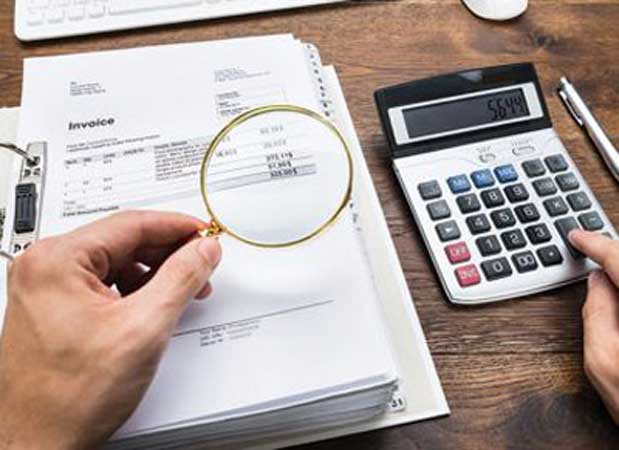

 Criminal Defence Solutions have the skills and the tactical acumen to secure the very best conclusion to allegations of tax fraud in a criminal context.
Criminal Defence Solutions have the skills and the tactical acumen to secure the very best conclusion to allegations of tax fraud in a criminal context.
Large-scale tax evasion is now higher on HM Revenue and Customs (HMRC) agenda than it ever has been. Partnerships, limited liability partnerships, limited companies, public limited companies, sole traders and individuals are under greater scrutiny, having to meet tougher reporting requirements and facing greater chance of being investigated.
Criminal Defence Solutions excels when it comes to defending both the professionals and advisors who are accused of being the architects of tax schemes, as well as the major business figures and high net worth individuals (HNWIs) who are the beneficiaries of such schemes. We represent directors, chief executive officers, chief financial officers and all other senior business individuals, financial professionals and institutions, academics, lawyers and HNWIs who may be investigated regarding tax advice they have given, tax schemes that they have become involved in either wittingly or unwittingly. This can be in relation to Direct taxes, such as Income Tax, Corporation Tax, Capital Gains Tax, and PAYE Tax, and indirect tax such as VAT.
HM Revenue and Customs (HMRC) has a wide range of powers; including the ability to raid premises. Those investigated by it must seek representation from lawyers with experience in challenging and negotiating with HMRC.
Criminal Defence Solutions is known for its astute handling of matters in order to secure a non-contentious resolution. But we also possess an admirable track record when it comes to representing clients in contested proceedings.
 Richard Freeman (AKA Mr. Technicality) is one of Scotland's most prominent Solicitor Advocates with the skills, decades of experience and technical expertise to vigorously defend your position. Its important to enlist the services of an expert defence lawyer with a strong track record such as Mr. Freeman.
Richard Freeman (AKA Mr. Technicality) is one of Scotland's most prominent Solicitor Advocates with the skills, decades of experience and technical expertise to vigorously defend your position. Its important to enlist the services of an expert defence lawyer with a strong track record such as Mr. Freeman.
 OR
OR

With the HMRC having a wide range of powers, the right response can be the difference between a prosecution being brought and the HMRC deciding not to proceed. It can ensure that any allegations are successfully challenged and then dropped. And it can be the beginning of a course of action that means the best possible outcome is obtained, however unlikely that may have originally appeared.
Advice regarding the right response can only come from solicitors who are totally familiar with the practices and procedures of the HMRC, particularly with the most challenging tax investigations.
Tax investigations are rarely simple. They can be lengthy and complex. HMRC has a variety of penalties it can impose, from ordering the payment of unpaid tax through to handing down a fine or bringing a prosecution. An individual or organisation facing such an investigation cannot afford to treat the matter lightly. The potential penalties and long-term damage an investigation can cause make it imperative that the right advice is sought immediately.
If HMRC has reason to believe that you are not paying the right amount of tax via arrangements such as pension schemes, employee benefit trusts or other tax and investment schemes, it may open a Code of Practice 8 (COP 8) investigation to claim money it says it is owed plus additional penalties and interest. Where a serious tax fraud is suspected, HMRC may investigate using the Code of Practice 9 (COP 9) investigation of fraud procedure, whereby taxpayers are given the opportunity to explain via a Contractual Disclosure Facility all their deliberate and non-deliberate conduct that has led to irregularities in their tax affairs.
HMRC decisions can usually be appealed. This is done initially by writing to HMRC and then, if that is not successful, by appealing to the tax tribunal system.
The tribunal system is two-tiered, with an appeal being made at first to the Tax Chamber of the First-Tier Tribunal. If the First-Tier Tribunal's decision is considered unsatisfactory by the appellant, they can appeal against it if the First-Tier Tribunal grants permission to the Tax and Chancery Chamber of the Upper Tribunal.
As with all aspects of dealing with the HMRC, a strong, reasoned and well-argued case is vital if success is to be achieved.
Since 30 September 2017, companies and partnerships can be held criminally liable, under the Criminal Finances Act 2017, if they fail to prevent the facilitation of domestic or overseas tax evasion; whether or not they were aware of or involved in the misconduct.
This offence of failure to prevent tax evasion gives considerable extra power to HMRC. It also places a great responsibility on those in business to ensure that they have adequate procedures in place to prevent the offence being committed. Having reasonable prevention procedures in place is the only defence to such an allegation.
Criminal Defence Solutions are happy to represent those facing such allegations. But we are also able to provide advice for our ability to devise prevention procedures, that can provide the defence to those allegations
If you are facing charges of Tax Fraud whether Income Tax evasion, VAT Fraud, Capital Gains Tax Fraud or other alleged fraud by the HMRC, it is imperative that you obtain competent and expert legal advice as fast as possible. This is a highly specialised area and choosing the right Solicitor Advocate that also has Tax experts, as we do, as part of our consultancy defence team is vital.
Don't delay! You can Contact us by form or by phone on 0800 567 7810 to find out what can be done.